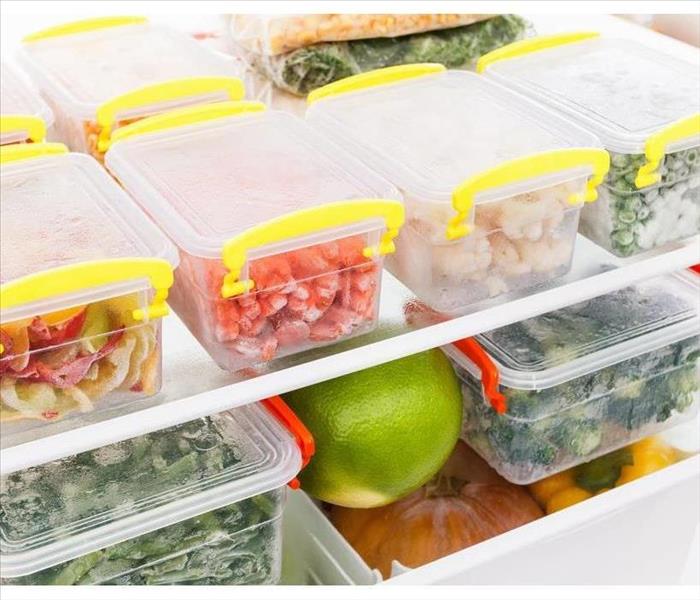Keeping Mold From Being an Unwelcome Guest at Your Restaurant
7/23/2021 (Permalink)
If you work in the food service industry, you may be quite familiar with how uncomfortable working in a too-hot kitchen in Philadelphia, PA, can be. But while your physical discomfort may be bothersome, the food that you’re preparing can potentially suffer far worse. Kitchens play host to an abundance of warm, moist air as it is, and when that hot air merges with an occasional blast of cool air coming into the kitchen from an air-conditioned dining area or a back door, the condensation that ultimately forms can quickly lead to mold growth on your food.
Keeping Food Mold-Free
Mold growth can occur quickly under the right conditions. Taking these steps can help prevent mold from contaminating the food in your work kitchen:
1. Properly launder all kitchen towels, sponges, and dishcloths on a regular basis. Keeping these items dry and well ventilated prior to laundering will help prevent mold and mildew from forming.
2. Take special care to clean wood cooking tools. Wooden kitchen tools in particular are at high risk for developing mold. Make sure that these tools are properly washed and thoroughly dried, preferably in a spot where there is plenty of air circulation (and light, if possible).
3. Keep your refrigerator clean. Cleaning the place where the food will be stored will help cut down on the risk of mold. A solution of one to two tablespoons of baking soda dissolved in a quart of warm water is an effective cleaner for the fridge.
4. Carefully inspect any food you buy. Fresh produce should be examined closely for any bruising, pits, or dents, which will indicate damage during shipping and/or potential rotting on the inside. Choose firm, evenly colored produce with a relatively smooth surface and a fresh smell. Similarly, check fresh meats, poultry and jarred food items for any signs of mold.
5. Store food properly. Protect your food from any airborne mold spores by keeping it tightly covered with plastic wrap. Cover and refrigerate perishable foods and ensure that they do not sit out at room temperature for more than 2 hours. Consume leftovers within 3-4 days.
Utilizing a Proper Ventilation System for Mold Prevention
When managing an area with high humidity such as a restaurant kitchen or bakery, it is imperative to have an adequate ventilation system to keep air cool and circulating. Since experts recommend keeping the relative humidity level to below 40 percent, more than one HVAC unit in a commercial kitchen – one in the front and one in the back – is a wise choice. Also, be sure to maintain all gaskets and vents, keeping them clean and free of any dust or debris. Taking this approach, in addition to employing efficient exhaust hoods and fans, help prevent food spoilage as well as overheated conditions for kitchen workers. If water damage has already occurred in the walls or ceiling, you may want to enlist the help of a specialist to remove any resulting mold.
Keeping your kitchen in Philadelphia, PA, free of mold growth is a continual process, but following these tips will help ensure that your workspace remains as clean and effective as possible.






 24/7 Emergency Service
24/7 Emergency Service